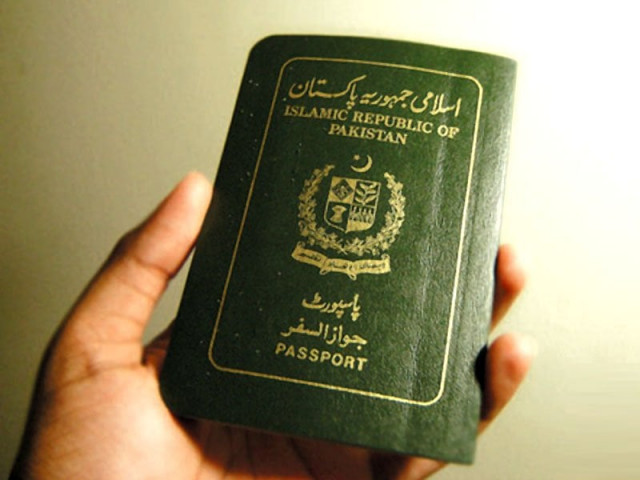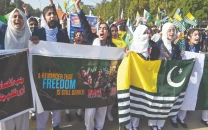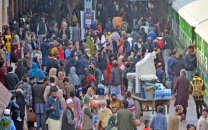Does the system work?: Emigrants run into hurdles in hunt for work permits
Applicants complain of red tape, money-making schemes.

Over 5.9 million Pakistanis work abroad, many of them doing small-time jobs. PHOTO: FILE
These are the emigrants - the people who will become part of a network of overseas Pakistani residents sending $14.3 billion home in remittances every year, an amount that helps Islamabad avoid defaulting on its foreign debt. The men and women are waiting at the Protectorate of Emigrants, an office set up after the introduction of the Emigration Ordinance 1979. The department’s job is to facilitate emigrants, keep a record of their relocation and regulate overseas job promoters.
According to the National Bank of Pakistan, the average size of a single remittance is between Rs50,000 and Rs60,000 and almost 90 per cent of families receiving money fall in this category. Over 5.9 million Pakistanis work abroad, many of them doing small-time jobs.
An emigrant’s journey begins at the NADRA offices, where they apply for the National Identity Card for Overseas Pakistanis (NICOP). NICOP fees vary between Rs2,500 to Rs21,800 depending on the type of card and the emigrant’s destination. Applicants then proceed to the passport office, collect a challan and pay fees at two banks, as well as Rs2,000 in insurance fees at the protectorate office. The total expense of the process is an average of Rs15,000, without the involvement of agents, who charge separate fees. “This entire process involving the passport office, the protectorate, and a verification of documents is nothing but humiliation,” says Niaz*, who works in Dubai, and has been standing in line for hours for his documents to be stamped.
“I think the government thinks that anyone boarding a plane to the UAE or England must be well off. They don’t realise the condition in which most of the workforce manages to go abroad,” said another applicant.
DG Bureau of Emigration and Overseas Employment Habib ur Rehman says the funds, particularly the insurance amounts, are being put to good use. “In 2013 alone we disbursed Rs600 million against 455 death claims.” NADRA’s DG Operations Mir Alam says a proposal is being considered to use the offices of Overseas Pakistanis Foundation (OPF) to process the ID cards of emigrants quickly in order to avoid congestion at NADRA offices. Meanwhile, the DG Bureau of Emigration and Overseas Employment Habib ur Rehman says deteriorating security conditions might be the cause of long delays in the process. “We have to cross-check everything and make sure it’s a genuine case.”
But these explanations are no consolation for Niaz Saleem who heads for Dubai in a few days. “I tolerate a one-room accommodation I share with other men for months in Dubai only for my family’s future in Pakistan. I only request government officials to give us some respect.”
Published in The Express Tribune, June 23rd, 2014.



















COMMENTS
Comments are moderated and generally will be posted if they are on-topic and not abusive.
For more information, please see our Comments FAQ